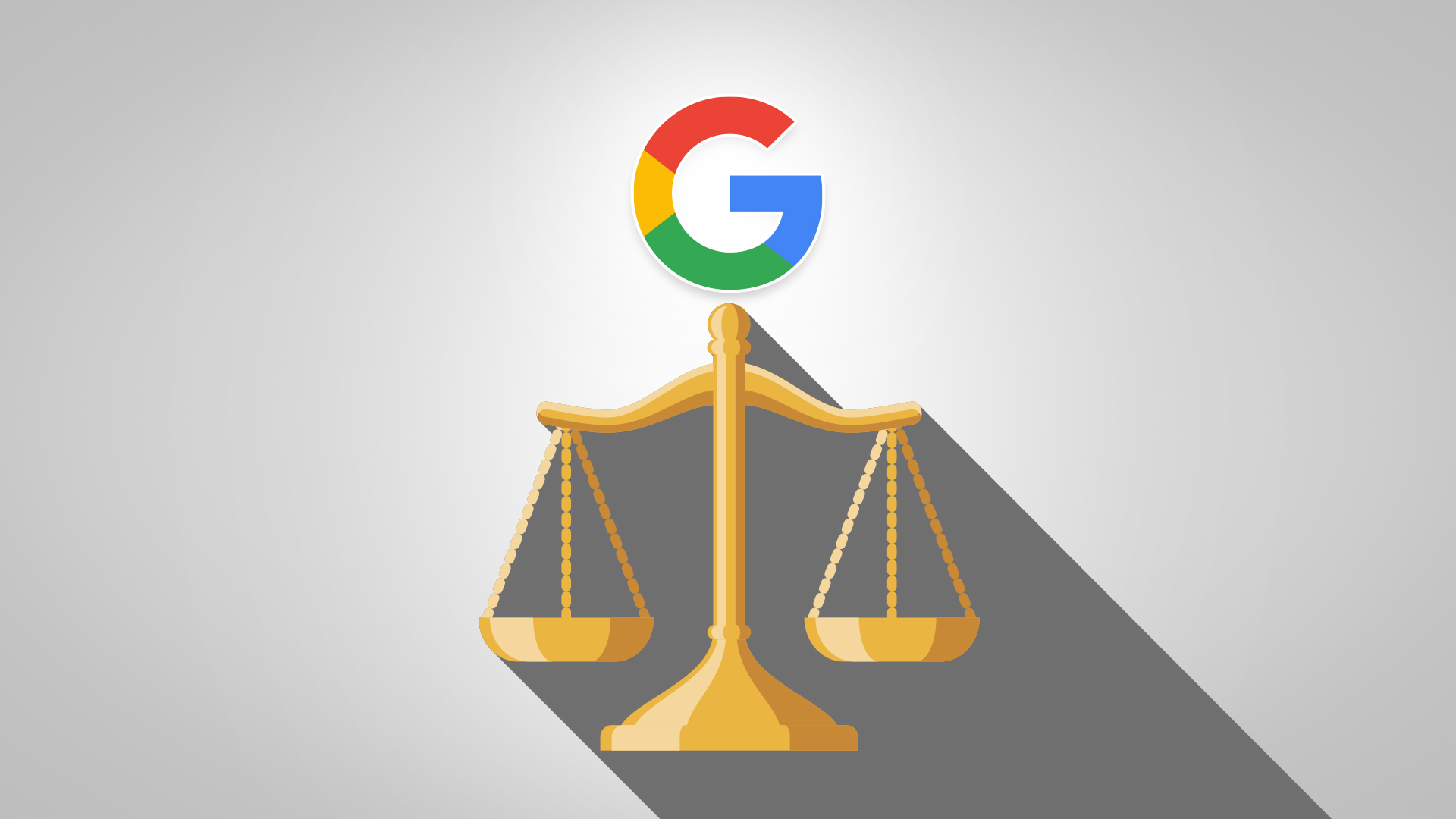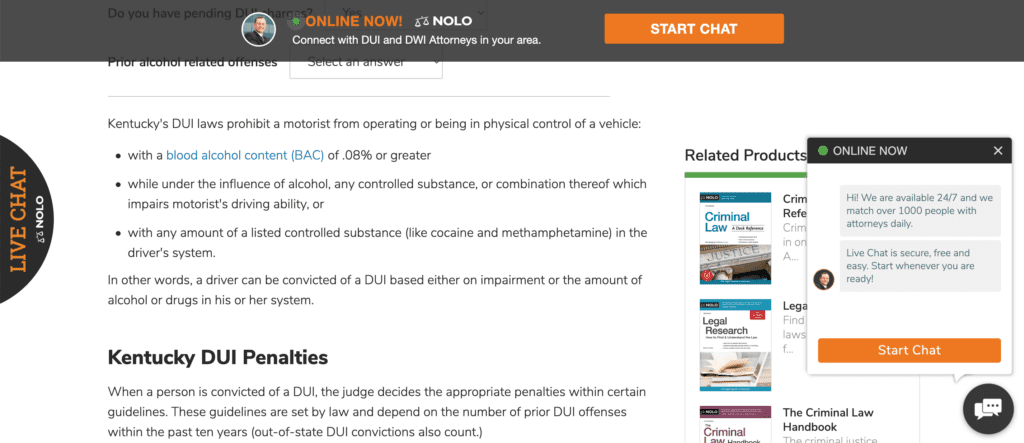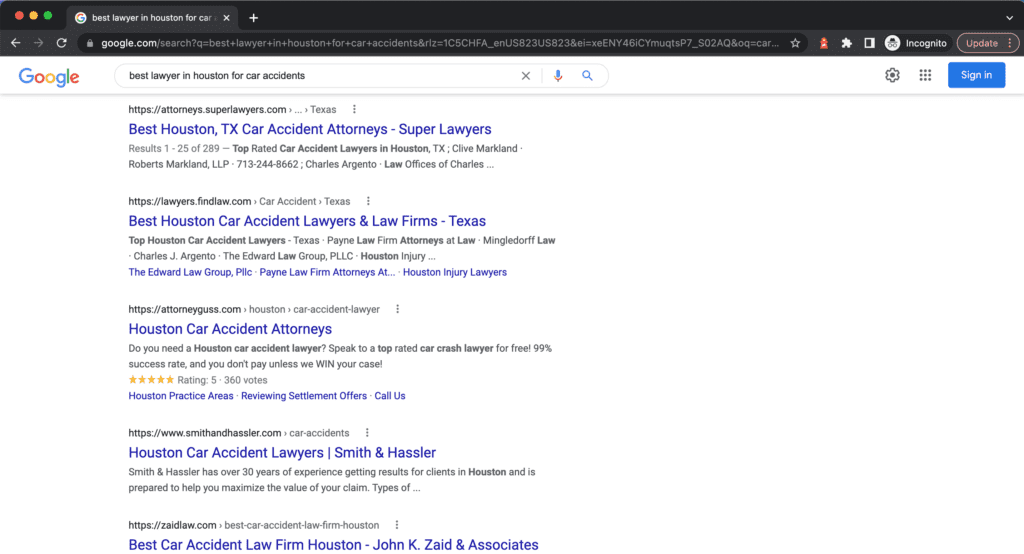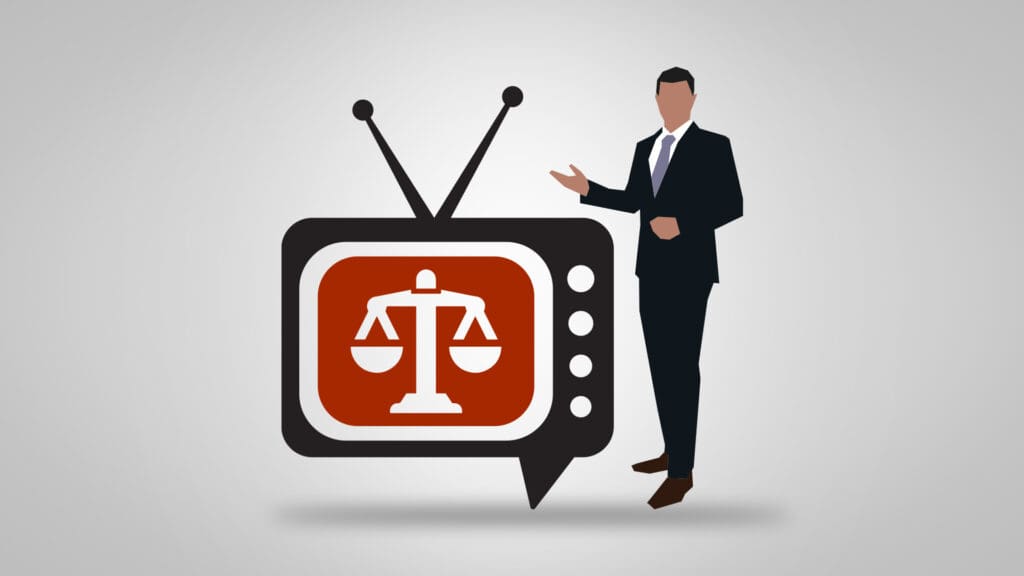
Google Helpful Content Update and Law Firm Websites: Understanding the Impact
For years, writing articles to help your website rank on Google has been important for generating traffic. For just as long, being found online has sometimes taken a divergent path from providing the most topical content for the user. If you haven’t heard, on August 18th, Google announced their Helpful Content Update. This might prove to be one of Google’s most significant updates to date. It is designed specifically to penalize websites whose content was created to attract clicks rather than deliver consumer-useful content.
In this edition of Plain Talk, we’ll examine the Google Helpful Content Update and law firm websites and explain the potential impact on yours.
- What the Helpful Content Update Means for Law Firms in Practical Terms
- How To Update the Existing Content on Your Law Firm’s Website
- How To Create New Content Moving Forward
- Get Expert Help Understanding the Google Helpful Content Update and Law Firms
What Helpful Content Update Means for Law Firms in Practical Terms
According to Danny Sullivan, Google’s Public Liaison for Search and the founding editor of Search Engine Land, “This ranking update will help make sure that unoriginal, low-quality content doesn’t rank highly in search…”
Unfortunately, much of the content on many law firms’ websites is just that. It’s keyword-stuffed articles that remind me of my pre-internet homework assignments from middle school, where I’d read an encyclopedia article and paraphrase it on topics such as the cotton gin or the Monroe Doctrine. Like the countless legal articles on DUI and asbestos, my encyclopedia-paraphrased articles provided no opinions and no authentic or useful data. Many law firm articles are just like this.

Chances are, if you hired an outside firm to write SEO-centric content for your site without interviewing your lawyers, other content experts, or clients, your site is likely full of what Google now describes as “low-value content” and your site’s organic visibility will start to suffer soon.
New criteria for evaluating your content
Google software engineer Perry Liu provides the below new criteria for evaluating your content:
- Do you have an existing or intended audience for your business or site that would find the content useful if they came directly to you?
- Does your content clearly demonstrate first-hand expertise and a depth of knowledge (for example, expertise that comes from having actually used a product or service or visiting a place)?
- Does your site have a primary purpose or focus?
- After reading your content, will someone leave feeling they’ve learned enough about a topic to help achieve their goal?
- Will someone reading your content leave feeling like they’ve had a satisfying experience?
The second bullet point is the snare that will catch most law firms!
How To Update the Existing Content on Your Law Firm’s Website
While the release occurred on August 18th, Google stated recently that it didn’t start rolling out until the 25th and that it would roll out to English language-based sites first. Since the 25th, the SEO community at large has noted that the rollout has been slow and the results not yet catastrophic.

How you should react depends on where you currently rank.
Ideas for improving current content
If you currently rank poorly, we recommend using this period of prescribed upheaval as an opportunity to make aggressive gains. Less important are the recommended content lengths, key terms, and page rank in the new era of helpful content. It’s not that these earlier measurements are non-important; it’s just that they are now less important than they were to make room for the new criteria. So be aggressive with editing your current content.
- Edit it to include quotes from key attorneys, clients, and results from cases.
- Offer opinions.
- Look to improve UX; Google wants to see that users’ questions are answered.
- A key way for Google to access satisfaction is time on page and depth of scroll.
- Use of images and in-page links helps assure that users are going deep into the page.
- Assess your content and site against the above criteria and subsequent similar lists of criteria coming directly from Google and reputable SEO practitioners.

Play your cards right
If you continue to rank well, wait and monitor. As a general rule, we do not fix what is not broken. This is especially true in SEO. We’re always trying to figure out exactly how Google is assessing our content. Changing when you’re on top doesn’t make you more on top. Plus, every move you make is oftentimes being assessed by competitors. It’s best to have moves and, like trump cards in euchre or pitch, only play them one at a time when necessary.
Even if Google doesn’t penalize your ranking under the new Helpful Content Update standards, your competitors who adhere to these standards will gradually surpass you. This may potentially lead to a decline in your position over time. So, if budget and culture allow you to prepare for the inevitable, load your hand. Address your articles as we recommend poorly ranking articles should be addressed; only wait! Have those expert quotes and opinions ready and proofread in a Word file. Also include images to be played one at a time like trump cards.
How to Create New Content For Your Law Firm Website Moving Forward
As we continue to move through what helpful content can be and what provides satisfaction to a reader, we have to look beyond metrics and go deeper. While attending MozCon 2022, Dana DiTomaso explained, “One of the questions that I think you should ask yourself … is what is the job you want your visitors to do when they’ve encountered your content? One of those jobs could be admiring how wonderful your content is.” So, each industry, each brand, each potential customer has an intent to consume content, and matching that intent is key for “helpful content” consumption.
Currently, many firms are outsourcing content development to SEO firms. These teams, at best, may communicate with only one or two people at the firm. Many of the partners may have no idea what content is on their sites. It’s so removed from them and their day-to-day. They may even just view it as stuff marketing does to create leads. Marketing may even contract with a national or multi-national SEO firm. These firms use roughly the same content for multiple firms across many geographies, making mostly geographic term changes. This method of content development is at high risk from the Helpful Content Update.
Moving forward, we recommend a more connected/collaborative method to ensure your content is, well, helpful.
Identify your subject matter experts
We feel the best approach is to identify subject experts within firms. While we’ll still rely on our current SEO tools to assess the competitive set and keywords before writing client articles, we suggest a new approach going forward. This usually means conducting interviews with a lawyer or subject expert. Then, either ghostwriting the article from their perspective or including their insights as quotes. By integrating these expert perspectives, we can enhance the quality and authenticity of our content.
Include several images (but do so thoughtfully)
As Chrystal Carter, Head of SEO Comms at Wix, discussed at MozCon, having lots of images in your articles ensures readership by visually enticing the reader to read on and are not overwhelmed. Focus not just on word stuffing but also plan for images. Where appropriate and permitted, consider using real case pictures. That will not only ensure articles are more authentic and demonstrate first-hand expertise but also visually interesting. One of the keys to proving an article was helpful content is for Google to see that it was mostly or fully consumed.
We’re considering numerous subtle content changes with our clients’ articles to adapt to the Helpful Content Update. Among these, we believe the Pareto Principle heavily influences the two mentioned above.
Get Expert Help Understanding the Google Helpful Content Update and Law Firms
While there is fear of the unknown with any change and maybe a little frustration, this is good. Keep in mind we’re not just subjects of the almighty Google algorithm; we are also consumers. The Helpful Content Update should prove to make all of our searches more helpful and rewarding.
If you have questions about the impact of the Google Helpful Content Update and law firms, let’s chat. Drop us a note or call us at 502-499-4209. Like what you read today? If you’re not already a subscriber to our Plain Talk newsletter, you can subscribe below.
Our Articles Delivered
Signup to receive our latest articles right in your inbox.



